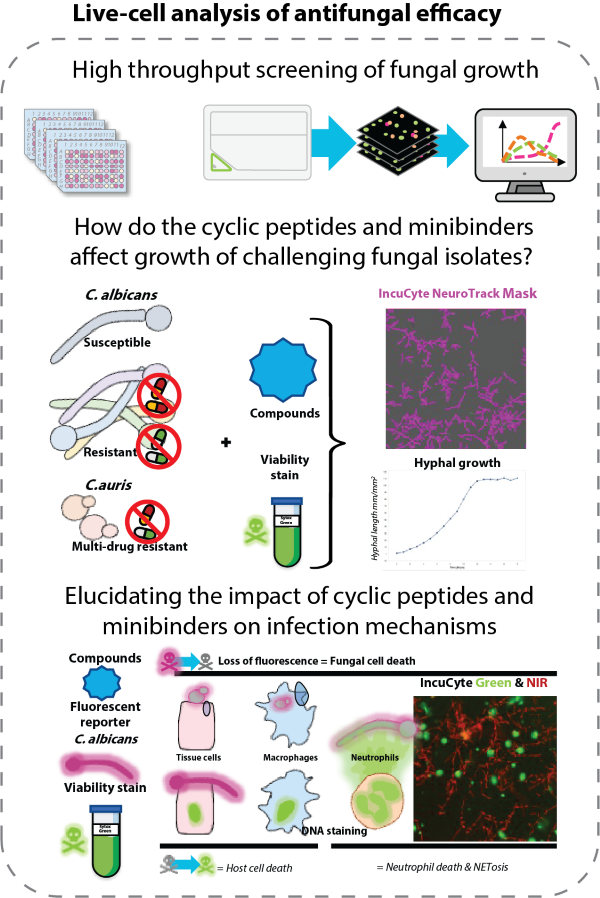De Novo Minibinders: De novo Minibinders and Cyclic Peptides as Anti-Infectives and Anti-Virulence Strategies Against Pathogenic Fungi
We provide a new discovery and evaluation platform for novel antimicrobial drugs.
This project aims to develop novel antifungal agents targeting Pma1, a highly conserved and essential membrane protein in pathogenic fungi such as Candida albicans and Candida auris, both listed as critical threats by the WHO.
The project will focus on generating two innovative classes of antifungal compounds: cyclic peptides discovered through the RaPID (Random non-standard Peptides Integrated Discovery) system, and protein Minibinders designed using advanced artificial intelligence tools including RFdiffusion and AlphaFold2. These agents are designed to selectively inhibit fungal Pma1 without harming human cells.
The research will combine the cutting-edge AI-based protein design with in vitro infection models and high-throughput live-cell imaging to evaluate the impact of developed Pma1 inhibitors on fungal viability, pathogenicity, and interactions with immune cells. In this way the inhibition of fungal growth will be monitored simultaneously with host cell viability, allowing us to assess whether Pma1 inhibitors represent Anti-Infectives or Anti-Virulence therapies. A state-of-the-art intestine-on-chip model established for Candida albicans infection will be used to assess antifungal and anti-virulence effects in a near physiological setting.
Fungal infections are an escalating global health concern, particularly among immunocompromised individuals, and are intensified by rising antifungal resistance, emergence of new multi-drug-resistant fungal species, and limited therapeutic options. The project targets an unmet critical clinical need and has the potential to shift the paradigm in antifungal therapy by providing a novel class of antifungal drugs. It will not only deliver promising lead compounds for clinical development but also establish a broadly applicable discovery and evaluation platform for novel antimicrobial agents. The project is led by a multidisciplinary team with expertise in molecular biology, host pathogen interactions, and AI-based drug design.

Funded by: Novo Nordisk Foundation
Period: 2026-2029

Anja Thoe Fuglsang
Project leader Professor

